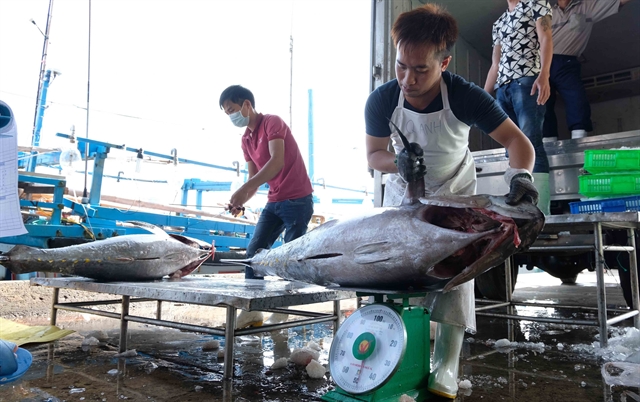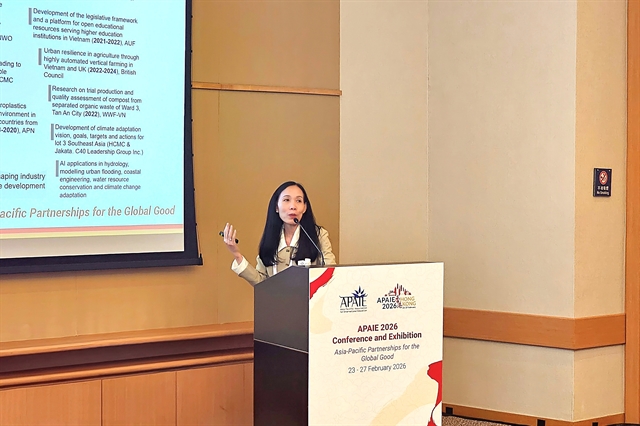 Politics & Law
Politics & Law

Vietnamese Deputy Minister of Foreign Affairs Nguyễn Quốc Dũng stressed the need to promote “dialogue and cooperation between ASEAN and China in ensuring just and humane treatment of fishermen,” especially those who are in danger, as a priority area of cooperation between the two sides.

|
| Vietnamese tuna fishermen from Khánh Hoà Province. — VNA/VNS Photo |
HÀ NỘI — Vietnamese Deputy Minister of Foreign Affairs Nguyễn Quốc Dũng stressed the need to promote “dialogue and cooperation between ASEAN and China in ensuring just and humane treatment of fishermen,” especially those who are in danger, as a priority area of cooperation between the two sides.
He made the statement at the “Workshop on Promoting Cooperation in Ensuring Just and Humane Treatment of Fishermen in the South China Sea” held on Tuesday in Hà Nội, an initiative of Việt Nam under the ASEAN-China Joint Working Group on the Implementation of the Declaration on the Conduct of Parties in the South China Sea (JWG-DOC), with the proposals and recommendations from the experts to be reported to ASEAN-China officials’ channels on DOC implementation.
Among the sea-going groups of people in the South China Sea (known in Việt Nam as the East Sea), fishermen are particularly vulnerable to dangers or distress situations at sea, including increasingly complex weather patterns and frequency of natural disaster, accidents and collisions, Dũng said.
“Over the past years, ASEAN Member States and China have undertaken various efforts in providing assistance and ensuring humane treatment to fishermen, including through their implementation of existing instruments related to safety at sea,” Dũng said.
In 2010, the ASEAN Foreign Ministers issued the ASEAN Declaration on Cooperation in Search and Rescue of Persons and Vessels in Distress at Sea, which demonstrates ASEAN’s political will to reinforce cooperation in providing mutual assistance to persons and vessels in distress at sea, he added.
It should be acknowledged that protection and provision of just, humane treatment to fishermen are cross-sectoral in nature, which requires a holistic approach to address, the Vietnamese diplomat said, acknowledging that there remains a certain difference in each others’ understanding of the issue, which results in a different application of law enforcement practice.
In this context, the cooperation between China and ASEAN to promote the issue as one of the “confidence-building measures” to implement the DOC, as well as to serve the benefits of fishing communities and the people as a whole in the region.
Nearly 200 million people depend on fishery resources of the South China Sea for their livelihood, heard the workshop.
ASEAN representatives said that fisheries activities in their countries are mostly small scale, and the risks the fishermen – usually having disadvantaged backgrounds – face necessitate long-term support.
Some positive examples – including the experience and actual progress in implementation of common guidelines for treatment of fishermen between Indonesia and Malaysia in the still-disputed waters between the two countries – are seen as valuable references for ASEAN-China framework in the future.
The event drew the participation of 120 officials, researchers, legal experts, representatives from ASEAN countries and Chinese embassies, along with representatives from international organisations in Việt Nam.
The Vietnamese deputy foreign minister hoped that the one-off event will be the “first step in the process toward a joint commitment and cooperative arrangement that will bring about direct benefits to the people of our region.” — VNS




